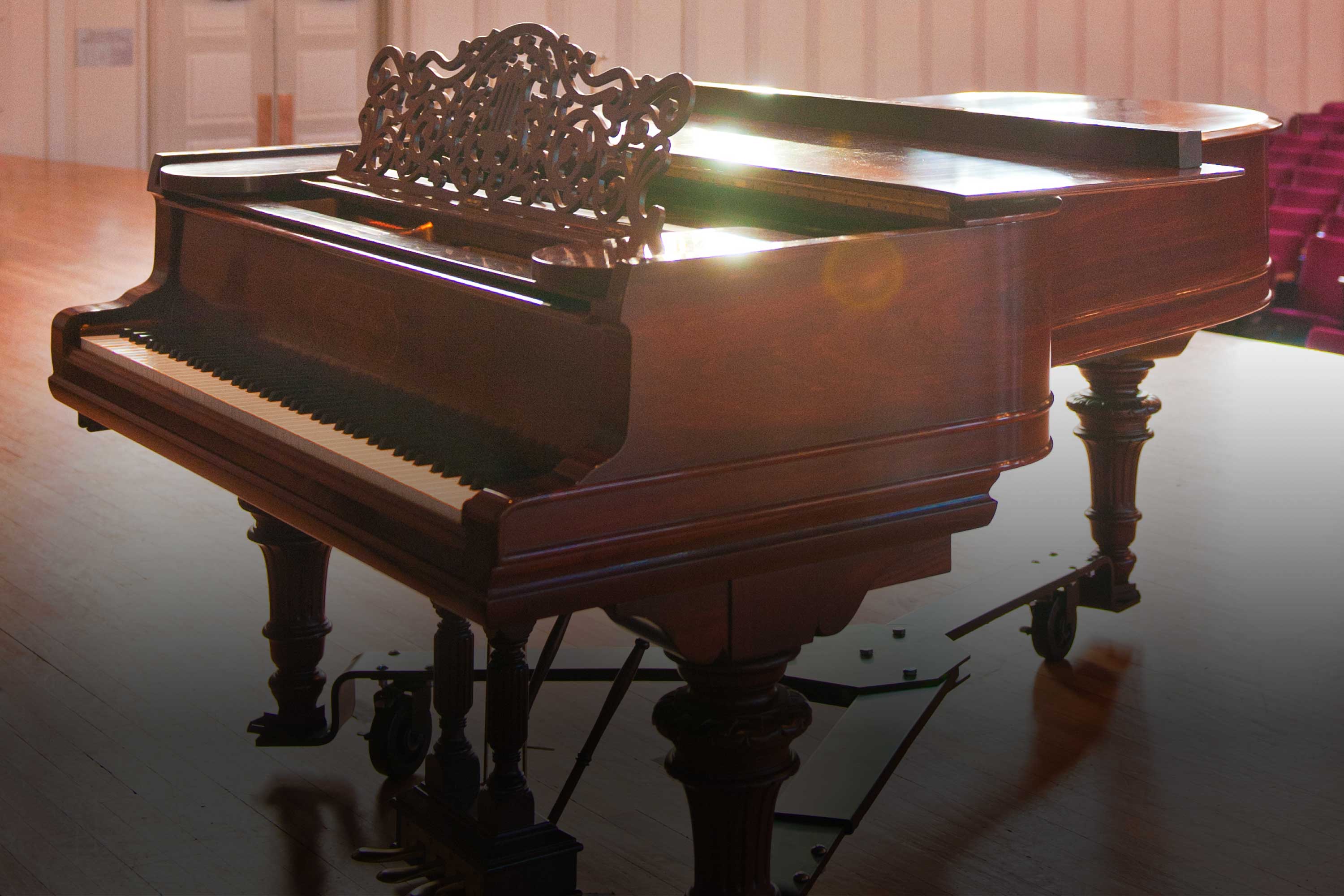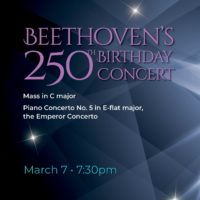Celebrate Beethoven’s 250th birthday on the cusp of spring with the Fairfield County Chorale when we present two signature works from his “heroic” period: the majestic and rarely-performed Mass in C major and the revolutionary Piano Concerto No. 5 in E-flat major, the “Emperor” Concerto. The vocal soloists, rising stars in opera and oratorio, will be Jennifer Jaroslavsky, soprano; Naama Liany, mezzo soprano; Pavel (Pasha) Suliandziga, tenor; Brian Mextorf, bass-baritone. The piano concerto will be performed by the mesmerizing Russian pianist, and special friend of the FCC, Ilya Yakushev.
Beethoven lived during a period of widespread political unrest, as the old order of hereditary rule was being challenged by notions of individual freedom, republicanism, and universal citizens’ rights. His commitment to these ideals informed much of his music, and as the predominant figure in the transitional moment between classical and romantic, he broke through the conventions of classicism to a bolder, more personal style.
Both works come from his “heroic” period, which began in 1802, when he had made an unhappy peace with his worsening and likely permanent deafness. No longer able to perform, he dedicated himself to composing, and many of the works from that time reflect themes of human struggle, affirmation, and celebration.
The Mass in C major was composed in 1807, as a commission for Prince Nikolaus Esterhazy, who had previously employed Joseph Haydn. The work manifests many traditional elements in honor of Haydn while also highlighting Beethoven’s more contemporary sensibility — emotional extremes from defiance to hope, coupled with a greatly expanded musical palette.
The Piano Concerto in E-flat major was composed in 1810. It resounds with a fierce exaltation, beginning with a series of dramatic flourishes, striking and original for that period, including a chorale-like exchange between piano and orchestra, and finishing with themes of serenity, exuberance, and fiery euphoria.






